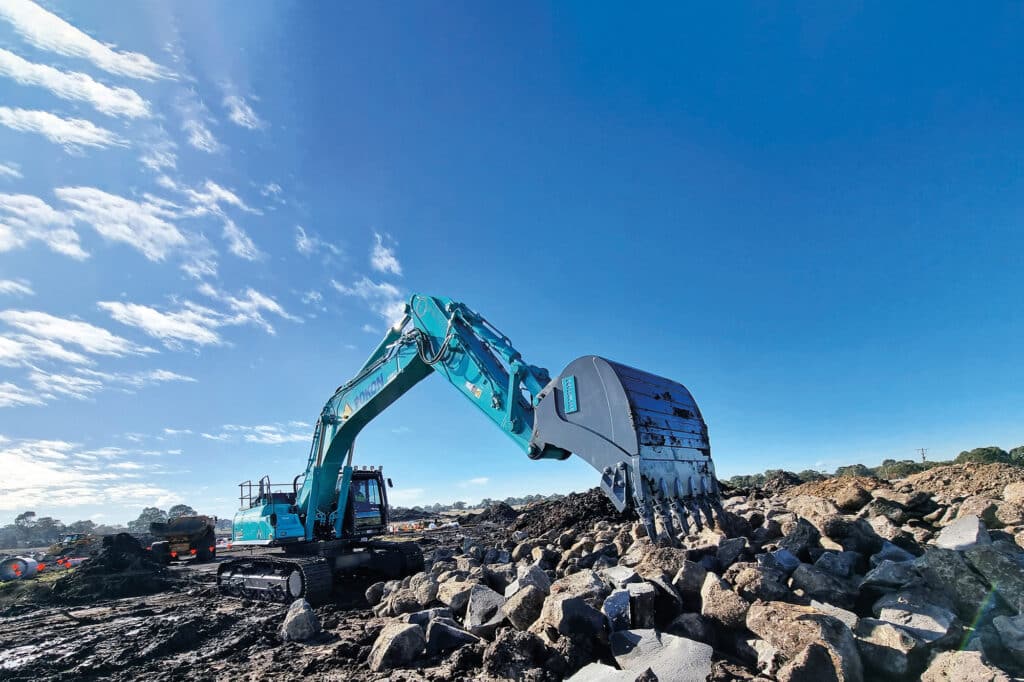
Sustainability in Rock Crushing: Environmental Impact and Green Practices
Rock crushing, a process fundamental to the construction and mining industries, has historically been characterized by high energy consumption and considerable environmental impact. However, as concerns about our planet’s health mount, sustainability is no longer a luxury—it’s a necessity. This article delves into the environmental impact of rock crushing and highlights green practices that can help make this crucial process more sustainable.
Understanding the Environmental Impact of Rock Crushing
Rock crushing, by its very nature, involves significant environmental considerations:
Land Disturbance and Habitat Loss
- Rock quarries: These are essentially massive holes dug into the earth, often destroying natural habitats in the process.
- Deforestation: Many a time, forested areas are cleared to make way for quarries, leading to a loss of biodiversity.
Water Pollution and Consumption
- Waste water: The water used in rock crushing can become contaminated with fine particles, chemicals, and other waste, which may end up in local waterways.
- Water scarcity: Excessive water use in rock crushing processes can deplete local water supplies, affecting local communities and ecosystems.
Air Pollution
- Dust: Rock crushing releases large amounts of dust into the air, affecting air quality.
- Emissions: Heavy machinery used in the rock crushing process often runs on diesel, emitting greenhouse gases.
Green Practices in Rock Crushing
Acknowledging the significant environmental implications of rock crushing, many companies are now incorporating green practices to mitigate their impact.
Energy Efficiency
Using energy-efficient machinery:
- Modern rock crushers are designed to be more energy-efficient, reducing power consumption and emissions.
- Transitioning to renewable energy sources, such as solar or wind power, can significantly reduce the carbon footprint.
Water Conservation and Treatment
Recycling water:
- Using closed-loop water systems can ensure the same water is reused multiple times in the rock crushing process.
- Implementing water treatment systems can clean waste water, ensuring that contaminants don’t enter local waterways.
Dust Control Measures
Reducing airborne dust:
- Using misting systems or dust suppressants can minimize dust emissions.
- Implementing green barriers, such as trees or shrubs, can act as natural filters, trapping dust particles.
Beyond Traditional Methods: Innovative Green Practices
Innovation is the cornerstone of sustainability in the rock crushing industry. Here are some groundbreaking methods being tested and implemented:
Remote Sensing and Automation
Embracing technology:
- Drones: Utilizing drones to inspect quarries reduces the need for on-the-ground workers, minimizing disturbances and risks.
- Automation: Automated rock crushing systems can operate more efficiently, reducing waste and energy consumption.
Sustainable Land Management
Restoring the balance:
- Reforestation: After a quarry’s life cycle, many companies now undertake reforestation efforts, replanting trees and restoring habitats.
- Land reclamation: This involves restoring the quarry land to its natural or economically usable state, ensuring that the land isn’t left barren.
Green Equipment and Materials
The next frontier in sustainability:
- Bio-based lubricants: These are derived from renewable sources and are biodegradable, making them an eco-friendly alternative to conventional oils.
- Recycled aggregate: Instead of always mining new rock, using recycled aggregate from previous construction projects reduces the need for new extraction.
The Road Ahead: A Future of Sustainable Rock Crushing
Rock crushing, given its significance in the construction and mining industries, cannot be avoided. But it can be made more sustainable. The industry is slowly recognizing the environmental toll and responding with innovative green practices.
Embracing Change
It’s vital for stakeholders involved in rock crushing to be proactive in adopting sustainable practices. This not only benefits the environment but can also offer cost savings in the long run.
Regulatory Framework
Governments around the world are imposing stricter regulations on mining and quarrying activities. This regulatory push ensures that companies maintain high environmental standards.
Community Engagement
Companies need to foster a transparent relationship with local communities, addressing concerns about water scarcity, air quality, and land use. A collaborative approach can lead to mutually beneficial solutions.
In Conclusion
Sustainability in rock crushing is no longer an option—it’s an imperative. By understanding the environmental impacts and proactively adopting green practices, the industry can ensure that it treads lightly on our planet. As consumers and stakeholders, the onus is also on us to demand sustainable practices in rock crushing, ensuring that our planet’s health is always prioritized.



